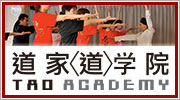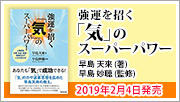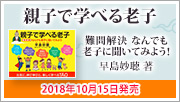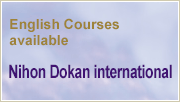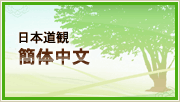HOME > トピックス一覧 > Taoist Co-Existence and the Future of Humankind. (Deputy Grand Mster Myocho Hayashima)
Taoist Co-Existence and the Future of Humankind.
2011.10.24
Deputy Grand Master of Nihondokan
Myocho Hayashima
Myocho Hayashima
1. A Noticeable Increase In Environmental Destruction and Natural Disasters
On March 11 this year Japan experienced the Great East Japan Earthquake. The tsunami washed away entire villages in the northeast. Over 15,000 died and 4,600 are still missing.
The earthquake and tsunami caused explosions at the nuclear power plants in Fukushima Prefecture, also the site of Nihon Dokan headquarters. The entire nation is anxious about the human cost of radiation.
Yet Japan is not the only place where such disasters are taking place. Globally we see natural disasters on an unprecedented scale, causing enormous destruction to human society.
Global warming has accelerated in recent years. Climactically Japanese summers have changed from temperate to tropical, so that we frequently see previously unimaginable phenomena such as typhoons (hurricanes), torrential rain and storms, ripping gales and cyclones. Global weather, in short, is becoming increasingly violent.
We often heard the word ‘beyond imagination’ to describe the earthquake. Indeed human beings could imagine such things happening but had either assumed they would happen much later or were praying that such things wouldn’t happen. It seems to me, however, that the Earth’s destruction is becoming a reality and accelerating.
2. The Tao Perspective: Human beings as part of the Universe
However ‘beyond imagination’ comes from thinking in human-centric terms. From the perspective of the Earth’s 4.6 billion-year-history, the recent disasters are nothing special and may even have happened before.Clearly current events are the result of mankind’s pursuit of money, profit and convenience with destruction of Nature considered a necessary evil. This has obviously accelerated the destruction of the global environment. We have reached a point where we must stand still and seriously consider our future.
Throughout history mankind has had to surmount innumerable challenges. Japan too has survived the Great Eastern Earthquake. The Japanese, receiving help from many nations including China, are uniting and working hard to get past this disaster and move on.
Three years ago China’s Sichuan Province also suffered a major earthquake. Yet already its people have united and moved on. I was invited last September to a Taoist cultural festival and deeply moved by the beauty of the reconstructed cities in Sichuan.
Nature has presented enormous challenges to human beings throughout history and we have survived. That has been true up to now and will be true in the future. In the same way the villages, towns and cities of north-eastern Japan, buoyed by support from around the world, will also return as places of beauty and comfortable living although it will take time. However this will mean constructing different towns, cities, indeed societies from the past, ones that harmonize with the natural environment.
3. Learning from Lao Tzu: Philosophy from the Universe’s Perspective
Another lesson from these disasters besides realizing human beings have aided in destroying the environment is this: In the history of the Universe the history of mankind is new. Human beings must reaffirm this and with greater humility make a positive effort to maintain harmony with the Universe and Nature. Humankind should be aware that it is kept alive by the energy of the Universe. In other words return to the Tao where human beings are part of the Universe.
It is said that this Universe is 13.7 billion years old, while the Earth is 4.6 billion years old. The history of humankind began about 5 million years ago with the appearance of the ape man, Pithecanthropus erectus, followed by homo sapiens 150,000 years ago. So in the history of the Universe the birth of man is a recent event, and the number of years humankind has been proliferating and creating culture is an even shorter span of time.
In that respect the various changes and natural disasters today are just small changes in its long history.
It is the energy of the Universe or the Tao that breathes life into the human beings of this world and keeps them alive. Nobody lives longer than a 100 or so years (except some Taoist sages who are reputed to have lived a few hundred years).
Other life forms including animals and plants are also set to live out their life spans. Yet human beings, particularly if they are behaving according to Western ideas, have tried to manipulate Nature to their advantage rather than co-existing with it.
Human beings are recent arrivals in the Earth’s history. The idea that these newcomers should rule the Earth is fundamentally mistaken.
In any case, it is not possible. Even if such a feat is achieved temporarily, things will revert to their original state according to the natural laws of the Universe and the balancing of energies. You see this when human beings try to plant trees to change a desert into an oasis. Another oasis ends up being a desert.
The Great East Japan Earthquake is not the only example of Nature threatening human existence with speed and violence. The news tells us of record rainfall and storms, cyclones, mountain fires and floods around the world. The power of human beings is small, while that of Nature balancing light and dark?the power of Nature’s energy?is staggering. One-sided, tunnel vision development that has only the human perspective and which has lost any idea of harmony and co-existence with the Universe has reached its limits.
Japanese today are seeking a large philosophy that transcends human-centric ways of thinking; instead, Japan needs a philosophy that positions human beings as part of the Universe. Without this large perspective no answers can be found in the aftermath of the earthquake and explosion of the nuclear reactors.
Taoism, the philosophy of Lao Tzu, brought to completion in ancient China before the birth of Christ, stands unique in viewing matters from the perspective of the Universe.
Now, more than ever, human beings must return the path of Tao. Unless we do so, human beings will continue with development and construction, only for natural disasters to destroy us. Unless we change course, such tragic events will surely recur. For the future of mankind and for a happier, more abundant future, a return to the Tao is needed now.
To live in accordance with the Tao means co-existing harmoniously not only with other human beings but with all living things. This includes plants and animals, Nature and the Universe.
This means co-existing harmoniously with those around you and those in other countries. But it goes beyond that. It also means accepting that you are kept alive as part of the great ki energy of the Universe and living in harmony with that ki.
Co-existence is not the way the world is going, judging from global events. Yet as we face the awesome power of Nature which is far beyond human control, as we see Nature destroy our comfortable lives in a flash and become acutely aware of our helplessness before such a force, we can also say that we have been given a chance to learn.
The time has also come when we must learn. If we waste this chance, mankind will accelerate towards unstoppable destruction.
It is a great blessing for humankind that Lao Tzu’s philosophy, explaining the great, natural laws of the Universe, had already been formulated for us in ancient times. Now is the time to spread the word, telling humankind to learn from Lao Tzu and learn about and live according to the Tao.
4. Learning from the wisdom of the ancient Chinese
Human beings come into existence from nothing and after time, they return to nothing; in other words, to a state of stillness. We find references to this in Lao Tzu’s Tao Te Ching, Chapter Nine.「持而盈之 不如其已、揣而鋭之 不可長保 金玉満堂 莫之能守 富貴而驕
自遺其咎 功遂身退 天之道也」
Tenrai Hayashima provides the following commentary on Chapter Nine:
“This is also a warning against human hubris. Hubris, put another way, means full of greed or in Taoist terms, attachment to the self. Human greed or desire knows no bounds. Even if a human being possesses position, power and money that others envy, he will never be satisfied.
This leads human beings to destruction and disrupts the harmony of the Universe. Human desire must be in balance with the Tao and the Universe.”
At longest human beings live about 100 years. We must find time to reflect so that we can calm our minds and decide what we should do in that short space of time that is our life. What should we leave for our children’s generation? Certainly it cannot be an environment wrecked by human greed and confused, hardened souls. What will guide human beings today is the ancient Chinese philosophy of the Tao and its medical science. It is a way of living that immerses itself in Tao, trains in honing ki energy, knows that the human body is a micro-universe and physically experiences co-existing with the Universe.
The Huangdi Neijing, the Bible of Chinese medicine, expounds this theory in the following way:
「上古之人 其知道者 法於陰陽 和於術数 食飲有節 起居有常 不妄作労。 夫上古聖人之教下也 皆謂之虚邪賊風 避之有時 恬憺虚無 真気従之 精神内守 病安従来 是以志閑而少欲 心安而不懼 形労而不倦 気従以順 各従其欲 皆得所願 故美其食 任其服 楽其俗 高下不相慕 其民故曰朴 是以嗜欲不能労其目 淫邪不能惑其心 愚智賢不肖不懼於物 故合於道 所以能年皆度百歳 而動作不衰者 以其徳全不危也」
It claims the ancients lived long and virtuous lives without getting sick because in their daily lives they drew as much ki energy from the Universe as possible and lived according to the Tao without overindulgence in human appetites. Chapter 25 of the Tao Te Ching also talks of Taoist living as heeding the natural laws.Up to Chapter 81, Tao Te Ching contains essential lessons for modern human beings to reflect on how to lead their lives. Ancient Chinese medical texts such as the Huangdi Neijing contain far-seeing insight on how the human body is part of the Universe.
Spiritually and philosophically human beings had already perfected such knowledge in such ancient times. Today, however, they do not make use of it; indeed, have forgotten it. The time has come for the world to partake anew of this wisdom.
Zhuangzi’s “Discussion on Making All Things Equal” tells us the ancients had already reached the pinnacle of knowledge.They were thus because their minds made less intellectual distinctions. A hierarchy in values did not arise, so disharmony with the natural Universe and the Tao did not happen.
Can today’s human beings set aside distinction and discrimination; in other words, set aside their entrenched value systems and find the courage to return to the way of Tao and be decisive? Nobody knows.
However I think it wrong to stand by and do nothing. The time has come for us, we who were born and live in these times, we Taoists who have found ourselves on the path, to transmit the philosophy of Tao to as many people as possible as well as communicate the reality of this crisis that humankind is facing.
Japanese passionately studied Chinese philosophy and medicine until the Meiji Restoration, especially during the Edo period. But when China entered the Qing Dynasty period, it turned its attention away from the magnificent culture of the Han people. By contrast Edo period Japan, under a sakoku closed door policy that shut Japan off from the outside world, formed a highly stable cultural climate and assiduously studied China’s sophisticated culture, philosophy and medicine.
Such studies came to an abrupt end with the Meiji Restoration. In hindsight this was a dreadful, irreversible thing; however, it is a great blessing that the journals and reports from those days still exist. We must leave this as a legacy to future generations.
5. Nihon Dokan Today
Today we have many ongoing projects at Nihon Dokan. We are looking into the Chinese classics, mainly Edo period texts, that our founder Tenrai Hayashima collected and are also working with Chinese scholars headed by Professor Ling Zhongpeng, vice-chairman of the World Academic Society of Medical Qigong, and Professor Li Jun-yang of Capital Normal University to revive the wisdom in these texts for modern audiences. We are also preparing to publish the results of these joint studies in both Japan and China. We have created Taoist centers all over Japan, published Tenrai Hayashima’s How to Read Lao Tzu’s Tao Te Ching and via the Internet transmit a Taoism that is easy for modern audiences to understand.Let me quote directly from our founder Tenrai Hayashima’s book How to Read Lao Tzu’s Tao Te Ching. He puts his interpretation of Lao Tzu in a nutshell in the Preface:
The central idea in Lao Tzu’s philosophy is that of living with the natural flow of the Universe. This means that in the phenomena of the Universe, unfolding according to the laws of necessity, there is no room for small human intent or desire. From the perspective of the Universe, human beings are like a speck of dust. Life is but one small moment in Nature and beyond human control.
However human beings do not understand this but lead their lives dominated by various egocentric obsessions. Human beings are ‘nothing’ before birth and return to ‘nothing’ with death. They do not own a single thing. If they realize this and rid themselves of shallow pride and desire, then life will be much more enjoyable. This way of thinking, in other words, is the highest way of living for a human being.
As is clear here, Tao is what Japanese need now in the aftermath of the Great East Japan Earthquake. Taoism, as laid out in Lao Tzu’s Tao Te Ching and based on the wisdom of ancient Chinese who existed before the birth of Christ, offers a powerful guide to surviving these difficult times for it shows us how to coexist with the Universe.
I believe the time has come for human beings to rid themselves of the petty, human-centric perspective and shift to that of the Universe. We must now be aware of ourselves as part of the Universe, kept alive like other living things, and with courage and pride follow the Tao and live according to the flow of Nature in coexistence with other human beings and beyond national borders, with all living beings.
6 .Hope for an aging society too
Japan today is a rapidly aging society. In 2008 the percentage of those aged 65 or above was above 22.1% of which 10% were 75 or above. One in five people are already elderly. If we continue like this over 40% of the population will be elderly in 2055?or two in five. Japan is not the only nation that faces this problem. China and the developed countries of the world face the same, big problem.We Taoists are not only the beneficiaries of Lao Tzu’s philosophy but also of the magnificent methods of training in ki energy. Ongoing training in honing ki energy harmonizes ‘mind, ki and spirit or the divine essence’ within the body so that illness disappears and those who practice it fulfil their human potential.
This truth offers a ray of hope to our aging societies. Healthy, elderly people will be able to cooperate with younger people and contribute to society; this indeed is the direction society needs to take.
The time has come to go about our lives with a different mindset. We should keep co-existence with the Universe in mind, and if natural disasters occur, for we do not know what the next day will bring, accept them for what they are and move forward with courage.
I would like to continue cooperating with the world’s Taoists and with those of you dedicating yourselves to our research, so that we may keep improving training methods, expanding our research and transmitting the way of the Tao to the world.
Aug. 2011
Nihondokan English Page






